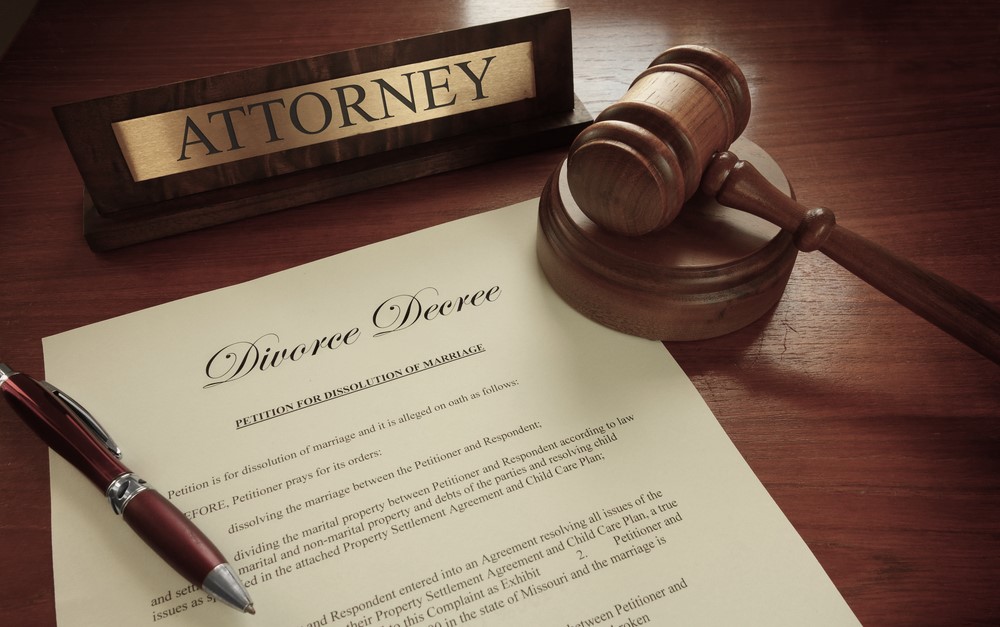The process of going through a relationship breakdown can be emotionally and legally complex. Understanding the difference between divorce and property settlement is crucial for navigating this challenging time. In this article, we will explore the key distinctions between these two legal processes in Australia and provide guidance on how to approach them.
Divorce: Terminating the Marriage
A divorce is simply the legal termination of a marriage. It focuses solely on ending the marital relationship and does not address the division of assets or financial and parenting matters. In Australia, there is no requirement for one partner to be at fault for the breakdown of the marriage. The only ground for divorce is that the marriage has irretrievably broken down and the parties have been separated for at least 12 months. Additionally, there must be no reasonable likelihood of reconciliation.
To apply for a divorce, you must satisfy the court that you have a valid marriage. This requires presenting your marriage certificate to the court, with a sworn translation in English if necessary. If you don’t have a copy of your marriage certificate, you can obtain one from the Registry of Births, Deaths, and Marriages. There are three eligibility criteria for applying for a divorce in Australia:

- Either party regards Australia as their home and intends to live there in the future.
- You are an Australian citizen by birth, descent, or by grant of Australian citizenship.
- You have been living in Australia for one year or more immediately before filing for divorce.
It’s important to note that you must have been separated for at least 12 months, and there should be no possibility of the marriage being resumed. Interestingly, you can still apply for a divorce if you have been separated but living under the same roof during this time. The current cost for filing an application for divorce is $1060, but if you receive Commonwealth Income Support payments, you may be eligible for a fee reduction.
If you intend to remarry, it is recommended to wait until you receive the divorce order, which typically happens one month and one day after the court hearing. This waiting period is usually 6-8 weeks after filing the divorce application. However, it’s crucial to allow for additional time in case the court requests additional evidence after the initial hearing.
Property Settlement: Distributing Assets and Liabilities
Unlike divorce, a property settlement focuses on the division of assets and liabilities between the divorcing spouses. It severs the financial ties between the couple while leaving the status of the marriage unchanged. A property settlement encompasses all the assets and liabilities owned by both parties, including cars, shares, savings, and superannuation. Importantly, owning a house is not a prerequisite for engaging in a property settlement.
The assets considered in a property settlement include joint assets as well as assets owned individually by each spouse, including those acquired prior to the relationship. When dividing the property pool, many factors come into play, and it’s important to note that an equal division is not always the outcome. Seeking specialized legal advice is crucial to understanding your entitlements in a family law property settlement.
Formalizing any property settlement agreement is necessary to prevent either party from seeking further claims in the future. Consent orders in the Federal Circuit and Family Court of Australia or a binding financial agreement can be used to document the agreement. It’s worth mentioning that you don’t have to be divorced to sort out your finances. In fact, it is recommended that you begin seeking legal advice in relation to property settlement before obtaining a divorce due to the time limits imposed on property settlements.

Obtaining legal advice shortly after separation can provide clarity and tailored guidance based on your specific circumstances. Consulting with a family lawyer experienced in relationship breakdowns can help you navigate the legal implications of the process.
Understanding the Distinction
It’s essential to emphasize that divorce and property settlement are separate legal processes, each governed by the principles of the Family Law Act 1975. While divorce focuses on the termination of the marriage, property settlement addresses the division of assets and liabilities. It’s important to keep in mind that there is a time limit of 12 months from the date of divorce to make an application for property settlement in the Federal Circuit and Family Court of Australia. If this deadline is approaching, seeking legal advice promptly is advisable.
Andersons Solicitors, led by family lawyer Jessica Walton, understands the complexities of relationship breakdowns and can provide the guidance you need to navigate divorce and property settlement. Their experienced team can assist you in understanding your rights and entitlements, ensuring a smooth transition through this challenging time.
For more information about separation, divorce, and property settlement, you can contact Andersons Solicitors at 8532 3141 or email [email protected]. You can also visit their office at 11A Seventh Street, Murray Bridge.
Interested in advertising with Murray Bridge News? We can help you reach thousands of highly engaged locals. Call Jane Intini on 0418 835 768 or email [email protected].
“Divorce and property settlement are two distinct legal processes, each with its own focus and requirements. Understanding these differences is crucial for a smooth transition through a relationship breakdown.”
